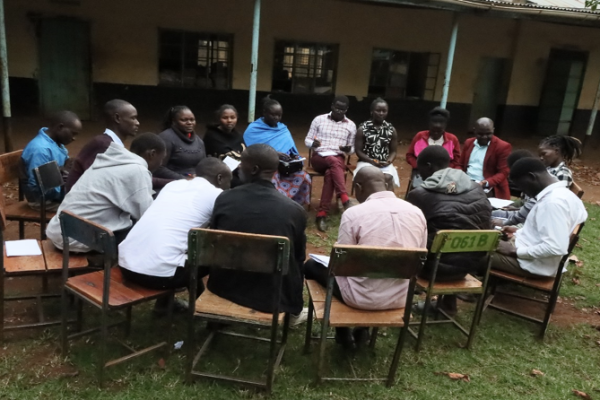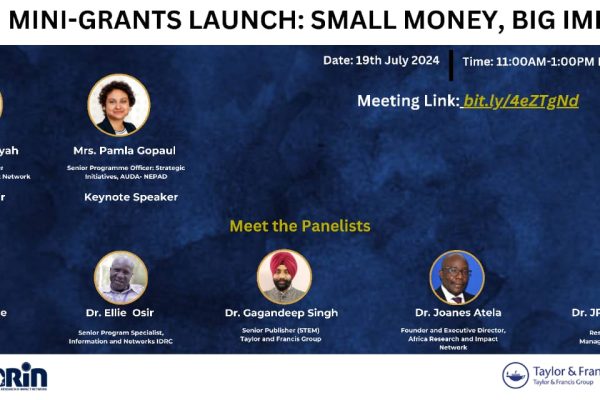Authors: Juliet Oluoch, Charles Tonui
Context and rationale
There is compelling evidence to increase climate finance to meet the 2°C targets and to catalyze scale-up of locally-led adaptation among the local communities in the global south from the impacts of climate change. While climate finance is largely implemented by the public sector, it is evident that the private sector must play a significant role in locally-led adaptation financing. As a result, a significant public-private dedication is required to facilitate collaboration between the private and public sectors to mobilize and facilitate access to climate finance among the local communities for locally-led adaptation. Collaboration with different stakeholders is pertinent to encourage groundbreaking partnerships that help establish markets and mobilize private sector investment for development. Therefore, public-private partnerships in climate finance are a potential approach for contributing to climate finance mobilization delivery not only in counties but also at the sub- nationally and community levels.
In Sub-Saharan Africa, several countries have developed public-private policy frameworks and climate change policy frameworks which have seen emerging collaboration between the public and private sectors in advancing climate change actions. All the East African member states have developed public-private partnership policies, however, the extent to which they have accelerated locally led adaptation is unclear. The global south project mapped significant non-state sub-national actors contributing to climate actions in the global south, e.g. in Kenya where 133 company private sector players were identified in climate policy formulation and adaptation-related entrepreneurship. Therefore, this demonstrates there is the potential for the private sector to create new business opportunities in the locally-led adaptation e.g., FLLOCA for Kenya, which encourages stakeholders, private sector, and public investment.
As envisaged in SDG 17, countries such as the East African countries that have established PPP policy frameworks and climate change frameworks can foster public-private investments in mobilization and leveraging of climate finance by LLA by taking into consideration the following:
- Harmonizing PPP and climate policies– Policy formulation is largely sector driven and often done in isolation from other related policies. The interplay between public policies such as climate policy shows that it is largely public driven hence private sector players are left out in the formulation process. This is exacerbated during the implementation process when the business community is absent in the implementation of climate policy. In addition, for instance in Kenya where the national climate change council has not been operationalized yet, it has been designed to bring together to bring public and private sectors.
- Incentivizing private sector financing for climate action by removing tariff and non-tariff barriers through policy provisions and programs. Several countries in Africa are already looking into incentives by removing tariff and non-tariff barriers for trade in environmentally sound technologies. In East African countries, the member states have harmonized the East African trade-related policies to catalyze Trade in Environmentally Sound Technologies that support locally led adaptation. This has the potential to trigger climate financing from private sectors (E.g. Microfinance) to support the production of climate technologies such as solar technologies which have seen several solar manufacturing companies established in Kenya and supplying neighboring countries ( Trade in Environmentally Sound Technologies).
- Establishing incubation centers for climate investments. The World Bank supported the establishment of Ethiopia and Kenya climate innovation centers which have brought together public institutions and the private sector to mentor entrepreneurs and link them to public and private finance. The Climate Innovation Centre model enables public-private partnerships where entrepreneurs are linked to public and private financing and supported to incubate their ideas into businesses.
- Establishing knowledge centers that catalyze public and private dialogues. At the COP 26 Africa-led events co-organized by UKRI and ARIN delegates were concerned that most partnerships have (un)consciously neglected the private sectors who are the key knowledge consumers. They acknowledge the role of the private sector in adaptation action, funding, and knowledge and data generation and management for climate action. They called for the need to harness transformative partnerships to bring on board private partnership players in climate action. Therefore, we have seen emerging knowledge centers and platforms. Over the years, climate actors have been engaging in sector-based knowledge-based management platforms, however, we have seen emerging knowledge centers and platforms that encourage linkage in climate research and investment in climate action.
However, there remains a challenge of identifying comprehensively private players in climate action and addressing their needs to scale up their actions for locally-led adaptation. A deliberate effort by local and international climate actors needs to be channeled to invest in scaling up the existing public-private partnership to take advantage of the emerging opportunities such as policy options e.g. incentives, removing tariff and non-tariff barriers in trade in environmentally sound technologies among others. In addition, there is a need to undertake a comprehensive mapping and analysis of private actors in climate action across Sub-Saharan Africa.


